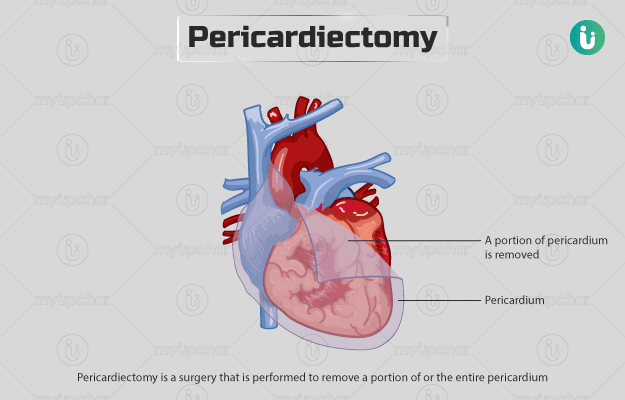Summary
Pericardiectomy is a surgery that is performed to remove a portion of or the entire pericardium - a fluid-containing sac present around the heart. Pericardium protects the heart from infections and reduces friction as the heart moves while pumping blood. However, conditions such as tuberculosis cause the pericardium to become stiff and prevent free movement of the heart. If left unchecked, it can lead to heart failure. Pericardiectomy provides relief from the symptoms arising from the stiffening of the pericardium, prevents worsening of the condition and improves the chances of survival. The procedure is performed only when other medical options are ineffective in resolving the condition.
The surgery will be done under general anaesthesia. After the surgery, you may need to be hospitalised for five to seven days or more as you may need some time to recover. You will likely be able to resume work after three months of surgery; however, it may vary depending on the nature of your work and your condition.






































